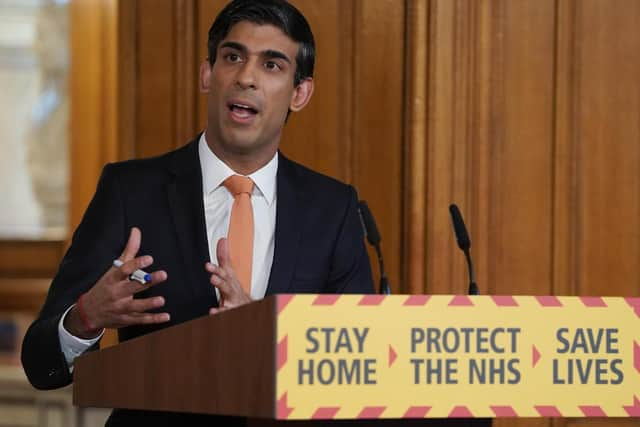'End of job retention scheme will being second wave of Universal Credit claims'
and live on Freeview channel 276
Dr Daniel Edmison of the University of Leeds says many people will struggle to return to employment because of the adjustments they have had to make to their working hours and practices during the pandemic.
He is part of a new research project into the benefits system during the pandemic which shows a majority of workless new benefit claimants are already looking for work, but that two-thirds want support in the coming weeks to help them do so.


Advertisement
Hide AdAdvertisement
Hide AdThe report is the first from the Welfare at a (Social) Distance project; a national research project investigating the benefits system during the COVID-19 and its aftermath.
It is led by the Sustainable Housing & Urban Studies Unit (SHUSU) at the University of Salford, working in collaboration with the University of Kent, the University of Leeds, Leeds University Business School and LSE.
Data is drawn from a new nationally representative YouGov survey, carried out between May 25 and June 3, of just over 2,000 new Universal Credit (UC) and Jobseeker’s Allowance (JSA) claimants.
Despite the huge drop in job vacancies and the fact that job-search requirements have been suspended, the majority of workless new UC claimants (54 per cent) and workless new JSA claimants (81 per cent) are job hunting – 59 per cent of new UC/JSA claimants overall.
Advertisement
Hide AdAdvertisement
Hide AdHowever, people looking for work say that they need more help in their search, with two-thirds (67 per cent) saying that they would like some sort of employment support, such as thinking about what jobs they could do, or help to improve their skills or to access training.
Chancellor Rishi Sunak announced last month that the UK's coronavirus furlough scheme, which has saved millions of jobs, will finish at the end of October and from this summer employers must start contributing.
From August, employers must pay National Insurance and pension contributions, then 10 per cent of pay from September, rising to 20 per cent in October.
Dr Edmiston said: "As the Coronavirus Job Retention Scheme winds down, we are likely to see a second wave of claims for Universal Credit. This will place further strain on a social security system that is already struggling to meet the needs of those worst affected by this pandemic.
Advertisement
Hide AdAdvertisement
Hide Ad“Many new benefit claimants are still connected to the world of work. However, a considerable number find themselves with less hours, pay and certainty about what the future holds.
“Despite the temporary absence of conditionality in the benefits system and direct job prospects nationally, the majority of new benefit claimants who have lost their job since March are looking for work.
"As lockdown eases, necessary adjustments to working hours and practices are going to make a return to work difficult for many - particularly for those with caring responsibilities and underlying health conditions. The future design of income and employment support has to engage with this new reality."